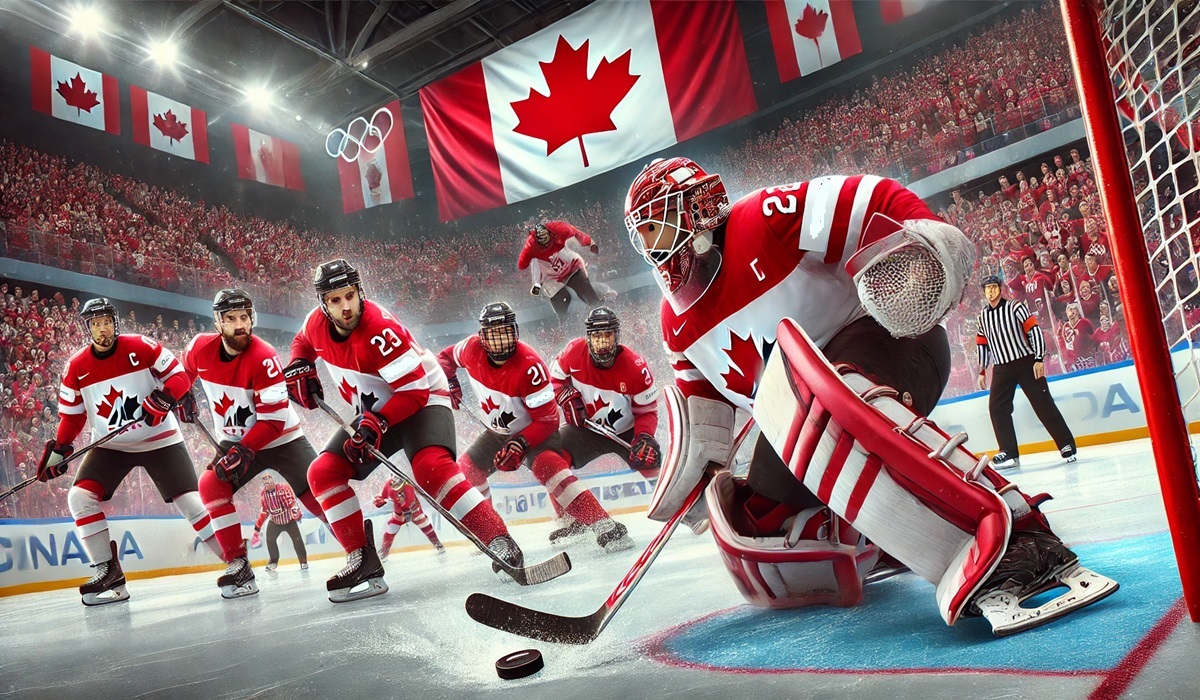Hockey Still Belongs to Canada: 4 Nations Cup Win Reinforces National Identity
- TDS News
- Sports
- February 21, 2025

Canada’s triumph at the 2025 4 Nations Cup with their men’s hockey team was more than just a victory in the sport—it was a powerful assertion of national pride and identity. As the Canadian team skated to victory against long-time rivals like the U.S., the win went beyond the ice, reinforcing the enduring image of hockey as Canada’s game. For a country often caught in the shadow of its larger, more powerful neighbor, the triumph was a reminder that hockey remains a key pillar of Canada’s culture, a tradition firmly rooted in its history, and an undeniable part of what makes Canada, well, Canada.
In a broader context, the win struck a chord with the ongoing debates about Canada’s future. As discussions about Canada possibly becoming the 51st U.S. state or the U.S. annexing Canadian territories continue to make their way into the political conversation, the victory at the 4 Nations Cup became a stark reminder of Canada’s distinct identity. This isn’t just about a gold medal; it’s about holding on to something uniquely Canadian in the face of constant American influence.
Canada’s success in hockey is a symbol of its enduring sovereignty, a statement that echoes far beyond the arena. With the U.S. having long dominated the global political and economic scene, many might see Canada as a potential target for political integration, but victories like this one remind us that Canadians continue to define their own destiny. The international sporting stage, especially in hockey, is a venue for Canada to assert that it is not simply an extension of the U.S.; it’s a powerful, independent force in its own right.
Hockey remains an integral part of Canada’s national consciousness. It’s not just a game; it’s a reflection of the values and strength that Canadians cherish. The 2025 4 Nations Cup victory underscores this, as Canada’s men’s team outperformed powerful contenders, reinforcing that the country has a unique place in global sports. It’s not just about winning, it’s about proving that despite the proximity to the U.S. and the economic pressures that come with it, Canada is, and will always be, more than just a neighbor.
At a time when some voices speculate about the possibility of Canada and the U.S. merging in some form, victories like this stand as an unwavering assertion that Canada’s identity is not for sale. Hockey’s role in the nation’s cultural fabric makes it impossible to imagine a future where Canada is subsumed into the larger American narrative. The symbolism here is clear: hockey is a reflection of the nation’s resilience, strength, and autonomy. And as long as Canada continues to dominate on the ice, the idea of it ever becoming part of the United States or of the U.S. swallowing up Canada’s vast territories will seem increasingly far-fetched.
The victory in the 4 Nations Cup does more than add to Canada’s storied history in hockey—it reminds Canadians and the world that hockey is a key marker of their independence. The game has been Canada’s cultural centerpiece for decades, and as long as its players are winning on the world stage, the notion of Canada becoming an extension of its southern neighbor seems nothing more than a distant, irrelevant conversation. The message is clear: hockey is still Canada’s game, and with each victory, the country’s independence is further cemented.








